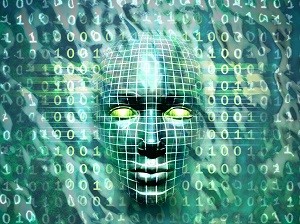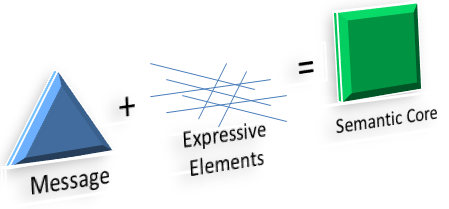Tag Archives: cybernetics
17 Apr Learning by Repetition

Frequency and Exposure For the very young, language learning requires mental gymnastics. Most theories of language learning refer to the fact that the frequency of repetition of a word or structure pattern determines the strength of its acquisition. In this context, there may be some threshold of frequency which, once reached, will result in the […]
14 Apr Translation: Inverted Communication

Lately I’ve been concentrating on modeling communicative skills. Whether speaking, signing, gesturing or writing, we begin with intent and wrap symbols around the intent or message to encode it. Translating and encrypting start with a fully encoded message, and unwrap it, before rewrapping it in a different form that is intended to preserve the original intent. Translation is an application […]
10 Apr Talking About Computational Linguistics

Computational Linguistics Today Massive strides have been made in the cognitive definition of thought, perception, culture and language. The interaction or kinship of all these elements of the human experience is also better defined. This combined work has increased our self-awareness and provided the basis for synthesizing and modeling automata to extend our abilities and […]
09 Apr Abstract Contexts and Fuzzy Reasoning

We do not yet know how we remember things, nor do we know how we use remembered things in reasoning. The amazing feedback loops of afferent and efferent fibers between different layers of the cortex give us some amazing clues (Hawkins 2004). Today’s discussion of abstract contexts and fuzzy reasoning is intended as a bridge […]
05 Apr Knowing About Agents and Instruments

Cause and Effect Causal knowledge can be learned by experience, as described in our friend Yorrick’s early experiences with the source of good feelings (Section 4: Seeds of Knowledge). The process of learning from experience is empirical and very fuzzy, meaning it is difficult to describe or replicate the learning process artificially. Cause can also […]
02 Apr Context and Expectations

Expectations are context based, top-down ideas of what comes next. These top-down ideas feed perceptual processing centers in the brain, helping us focus on what matters, ,and sometimes blinding us to other possibilities. The two types of context we will consider today are sensory and non-sensory. Sensory context applies to anything in the physical world […]
31 Mar Truth, Belief and Confidence

Establishing frameworks for truth, belief and confidence can be part of raising a child and part of building a more intelligent system. Parents in households of faith often feel a compelling need to teach their children about things that are outside the realm of scientific discovery. In espionage, intelligence analysts review information collected by agents, electronic snoops, and […]







